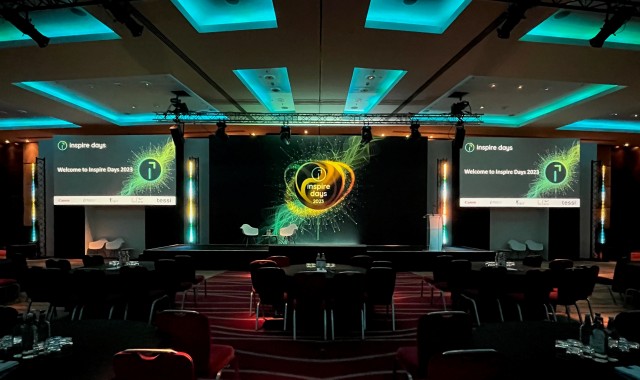Why Reliable Event Productions Are Key to Your Company Success
Why Reliable Event Productions Are Key to Your Company Success
Blog Article
Understanding Exactly How Events Production Works: A Comprehensive Summary of the Refine
The complexities of event manufacturing need a systematic strategy that integrates several stages, each playing a critical duty in the general success of an occasion. From the first preparation and principle advancement to the careful coordination of logistics, every component has to align perfectly to attain the preferred outcome. Comprehending the nuances of budgeting, resource allotment, and on-site management is necessary for any professional in this area. As we discover these components additionally, it becomes obvious that the process is not simply regarding implementation however also regarding continuous improvement and calculated evaluation. What understandings can we obtain from each phase?
Preliminary Planning and Principle Development
Efficient first preparation and idea development work as the foundation for effective occasions production. This stage includes defining the occasion's purpose, target audience, and wanted results. A clear vision is necessary; it overviews all subsequent decisions and assists straighten the group's initiatives towards a typical objective.
Throughout this stage, conceptualizing sessions can be vital. Engaging stakeholders, including clients, enrollers, and potential attendees, promotes a joint environment that creates ingenious ideas. Furthermore, comprehensive market study ought to be conducted to recognize trends, choices, and possible difficulties.
Once the concept is established, it is vital to create a comprehensive event rundown. This rundown must consist of the occasion's theme, layout, and crucial tasks. Developing a timeline is equally essential, as it helps to manage tasks and due dates successfully.
Budgeting and Source Allowance
With a solid principle in place, interest should turn to budgeting and resource allocation, which are crucial components in performing the occasion successfully. A distinct spending plan works as a roadmap, outlining all expected expenses and available sources. It begins with determining taken care of and variable expenses, consisting of place leasing, catering, advertising and marketing, modern technology, and staffing. Each classification ought to be diligently computed to stay clear of overspending and to make sure that funds are alloted properly.
Source allowance includes designating both economic and human sources to numerous tasks and elements of the occasion. Prioritization is crucial; important aspects should receive sufficient financing while less vital facets may call for a much more conservative approach. Furthermore, backup planning is crucial-- allocating a portion of the budget for unexpected expenses can alleviate monetary threats.
Furthermore, reliable communication among employee concerning spending plan constraints fosters collaboration and innovation. This advertises the responsible use of resources and encourages innovative services to stay within budget plan. Eventually, a strategic technique to budgeting and source appropriation prepares for an effective event, enabling planners to concentrate on supplying an unforgettable experience for attendees while preserving economic stability.
Logistics and Sychronisation
Navigating the intricacies of logistics and control is essential for the smooth implementation of any event. This stage includes precise planning and organization to make certain that all components operate in harmony. Trick components include venue choice, transport setups, and the scheduling of numerous additional reading tasks.
This includes comprehending the design, access points, and offered sources. Working with these elements requires collaboration with vendors, distributors, and transportation solutions to make certain timely distributions and pickups.
Another essential aspect is the growth of an extensive timeline that details all logistical aspects leading up to the occasion. This timeline functions as a roadmap, outlining crucial turning points and due dates for tasks such as equipment configuration, catering services, and audiovisual installations. Routine interaction with all stakeholders is vital to deal with any possible problems proactively.
Implementation and On-Site Management
Successful execution and on-site monitoring are critical for changing precise plans right into fact during an occasion. This stage involves the smooth control of numerous components, guaranteeing that every information aligns with the established vision. On-site managers play a critical function, serving as the main point of communication among suppliers, personnel, and stakeholders. Their capability to make real-time choices can significantly influence the event's success.
A distinct timetable is crucial, acting as a roadmap for all tasks. Event supervisors have to guarantee that arrangement happens on time, sticking to timelines for audio checks, catering shipments, and guest arrivals. Reliable problem-solving skills are likewise crucial; unanticipated obstacles can emerge, needing fast reasoning and adaptability to maintain the event's flow.
This level of interaction not just enhances the total experience but also go to website reflects the professionalism and reliability of the event group. Inevitably, successful execution and on-site management joint on in-depth preparation, efficient communication, and a dedication to delivering an extraordinary event for all included.

Post-Event Analysis and Responses
The culmination of any event exists not only in its implementation but also in the thorough examination that complies with. Post-event assessment is necessary for identifying the overall success of the event and recognizing areas for enhancement. This procedure commonly involves celebration comments from different stakeholders, consisting of participants, suppliers, and team participants, to get a detailed point of view on their experiences.
To structure the analysis, occasion coordinators often utilize studies and meetings, focusing on vital efficiency indicators such as guest satisfaction, logistical performance, and budget plan adherence. Examining this information permits coordinators to assess whether the occasion satisfied its objectives and to comprehend the strengths and weak points of the implementation.
By methodically dealing with responses and carrying out changes, event specialists can improve their strategies, ultimately leading to even more impactful and effective events. In final thought, post-event evaluation is a vital action in the occasion manufacturing process that makes sure recurring growth and excellence in future endeavors (Event Productions).
Conclusion

The complexities of event manufacturing demand a systematic method that incorporates numerous phases, each playing an essential function in the general success of an event.With a solid idea in place, attention has to transform to budgeting and resource appropriation, which are important components in implementing the occasion successfully.Resource allowance entails designating both human and monetary resources to these details various tasks and components of the event. Eventually, a critical strategy to budgeting and source allowance lays the groundwork for a successful event, enabling coordinators to concentrate on providing a remarkable experience for guests while preserving monetary stability.

Report this page